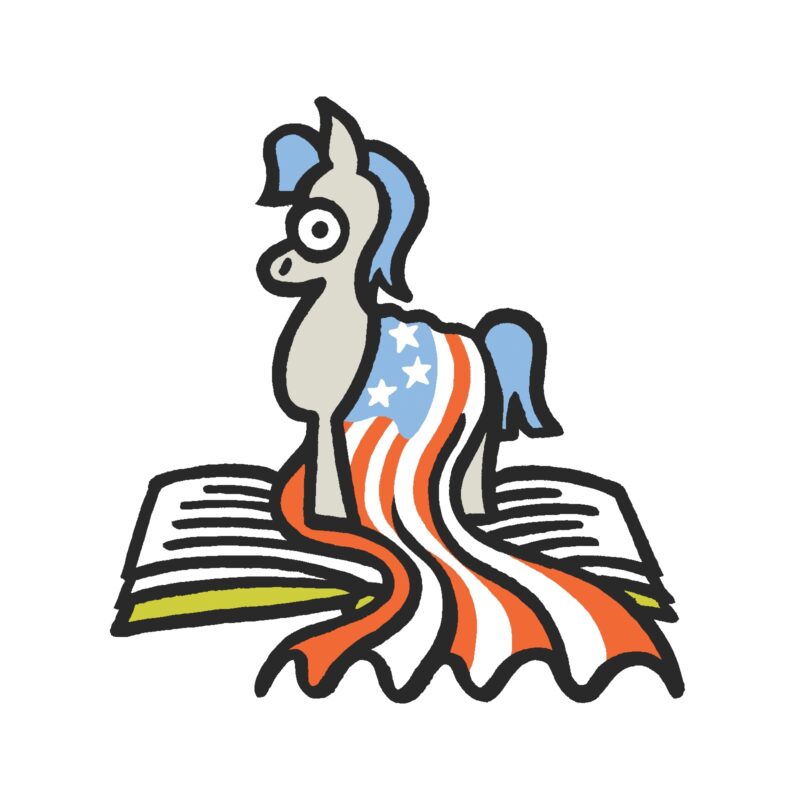When Greta Gerwig’s film Barbie came out last year, I was inundated with essays that analyzed the film’s joys, flaws, and gender politics. They often did so using a popular formula: mix high culture and low—children’s toys with critical theory—to reveal the ideology behind a “cursed work,” one that is flawed, but glamorously so. Many of those essays, I’ll confess, didn’t sustain my attention. But I tore through the poet, art critic, and novelist Lucy Ives’s essay collection with glee—even though she deploys similar tactics and theorists. What makes her approach feel so novel, so fun?
The five essays in An Image of My Name Enters America often take children’s pop culture artifacts, like My Little Pony and The Little Mermaid, and complicate them by applying a historical and critical lens. But the essays don’t feel didactic, because Ives makes her arguments using an appealingly roundabout path. An essay about childbirth and the cruel history of obstetrics takes multiple detours into sci-fi critique, from Liu Cixin’s The Three-Body Problem to Claire Denis’s film High Life. The first sentence of the book is about Ives’s pregnancy, the last sentence about her son’s birth—the trip there, however, involves excursions into the Metropolitan Museum of Art’s period rooms, teenage crushes, and the concept of irony. Ives’s strategy, she explains, is to pursue her interests wherever they lead. “It’s like a little ball I toss. It flies from my hand, soft yet determined; knocks against some surface at a distance, plunk.”
Throughout, Ives is disarmingly irreverent: Friedrich Nietzsche is “modernity’s most famous depressive,” and the New York Times article “The 36 Questions That Lead to Love” is “head-in-sand, cozy self-improvement” for romantics.
But Ives is serious when discussing historical injustices and infantilizing contemporary delusions—including her own. In “Earliness, or Romance,” Ives shows how fantasies of heterosexual love and family are yoked to America’s violent settlement of the West. Artifacts she examines include the educational game The Oregon Trail and the film Seven Brides for Seven Brothers, which depicts, to use Ives’s cheerfully online phrase, “#cottagecore avant la lettre.” Ives invokes two patron saints of literary analysis, Sigmund Freud and Lauren Berlant, to argue that our dreams of a perfect, self-actualizing romance are inevitably compromised by the past: namely, parental dysfunction and social inequality....
You have reached your article limit
Sign up for a digital subscription and continue reading all new issues, plus our entire archives, for just $1.50/month.
Already a subscriber? Sign in





